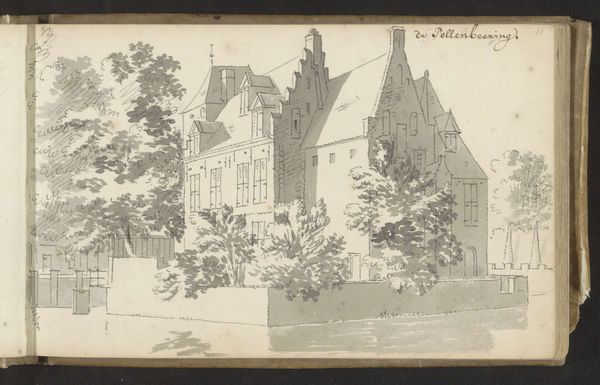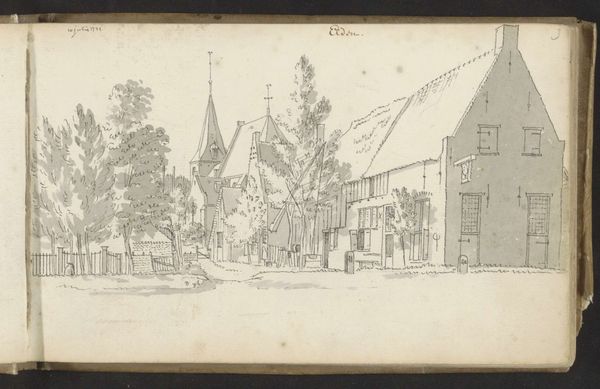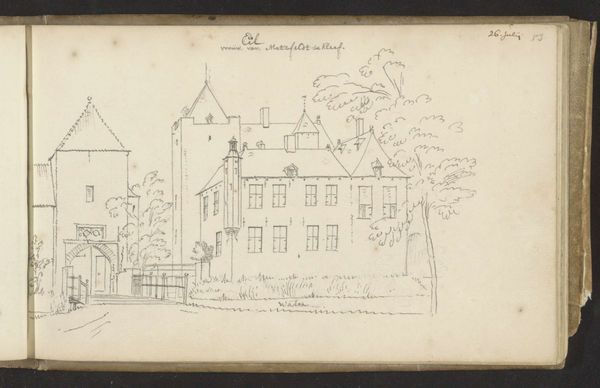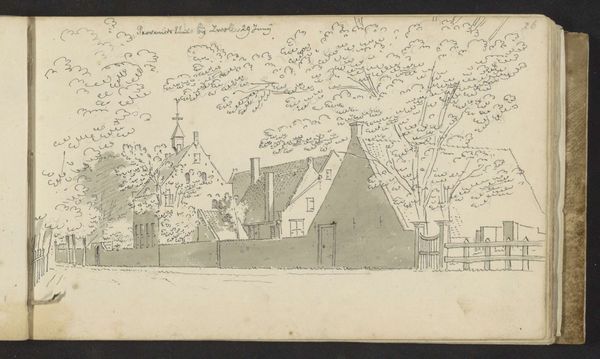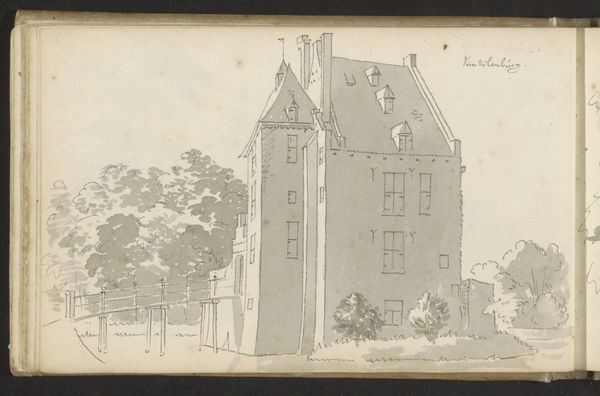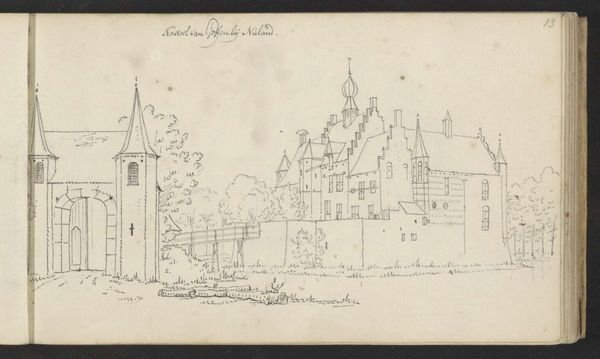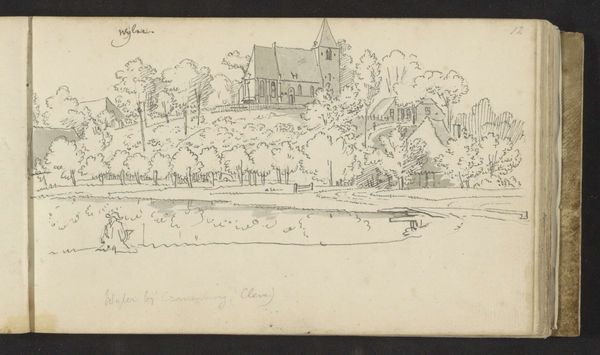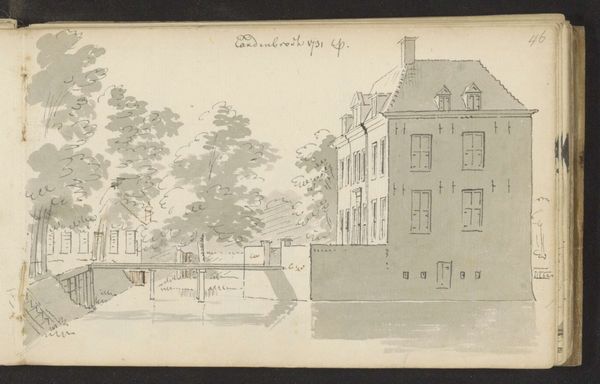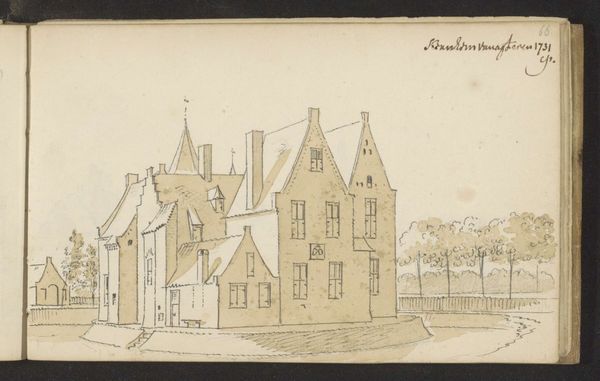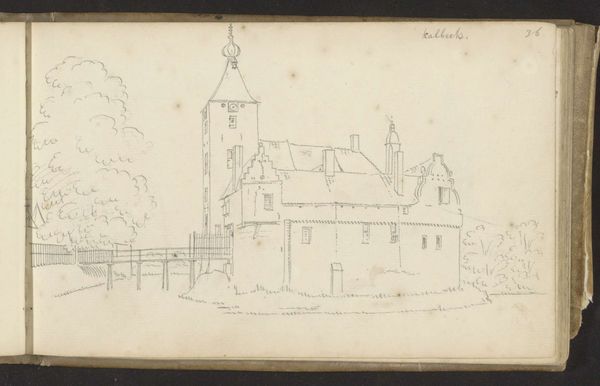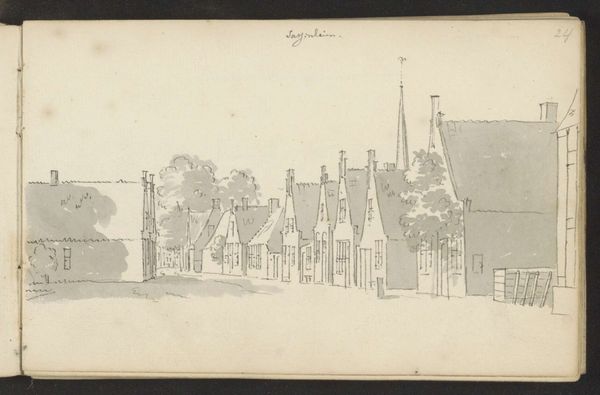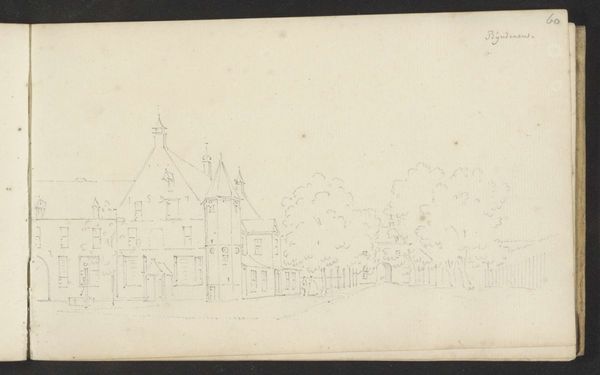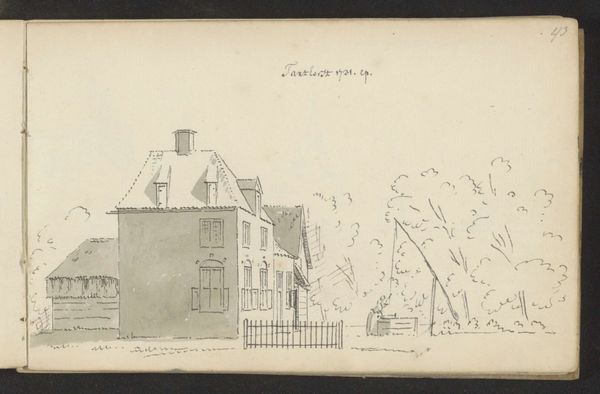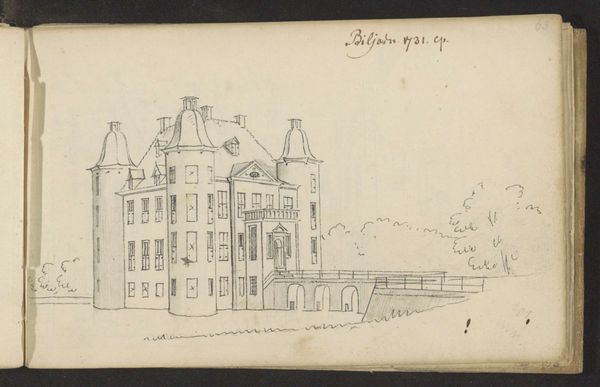
drawing, paper, ink, architecture
#
drawing
#
dutch-golden-age
#
pen sketch
#
sketch book
#
hand drawn type
#
landscape
#
paper
#
personal sketchbook
#
ink
#
sketchwork
#
pen-ink sketch
#
pen work
#
sketchbook drawing
#
storyboard and sketchbook work
#
sketchbook art
#
architecture
Copyright: Rijks Museum: Open Domain
Abraham de Haen the Second made this sketch of Kasteel Schalkwijk in 1731, with pen in brown ink on paper. The quality of the line suggests a brisk, economical approach. De Haen moved quickly to capture the scene before him, and the immediacy is palpable. Notice how the artist paid closest attention to the main structure of the castle. The image suggests it was part of a series of quick impressions, produced in a sketchbook. While the image is simple, it represents a decisive moment in the history of art. A shift in value from the laborious production of paintings, to a more casual approach, where the artist travels and captures scenes from life. In this context, the drawing represents not only the castle, but the lifestyle of the artist, and a culture of leisure enabled by colonial trade.
Comments
No comments
Be the first to comment and join the conversation on the ultimate creative platform.
